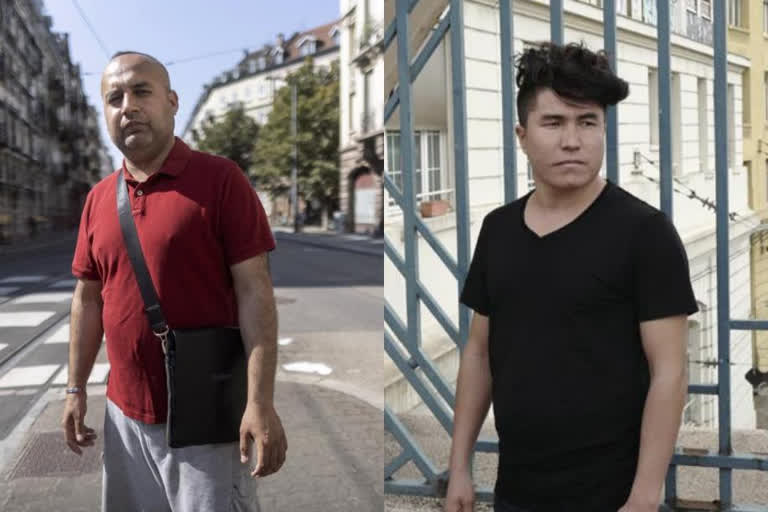Paris:One slept on the streets of Paris, the other in a massive makeshift migrant camp in northern France.
Nassrullah Youssoufi and Abdul Wali were among more than 1 million refugees and migrants who reached Europe in 2015.
The two Afghans don't know each other, but they share a fear-driven past: escaping their homeland on foot, bus, train or ferry and landing in a new country where they had no rights, not even the right to stay.
Years later, the men live in France legally, one working as an asylum court interpreter in the capital and the other at a restaurant in the country's northeast.
They are rich in hard-won experience that offers a road map for arriving Afghans, like the thousands evacuated to the United States, Europe and elsewhere after the Taliban regained control of Kabul last month.
Youssoufi and Wali's advice: Embrace the differences, love your new life and learn the local language.
For the 124,000 people airlifted out of Afghanistan last month during the US-led evacuation, the most harrowing part of their journey may well have been getting past checkpoints, gunfire and desperate crowds to reach Kabul airport.
But a much larger number of Afghans found their own ways out before the Taliban takeover, and more are expected to flee in the months ahead.
The people from the Middle East, Africa and South Asia who knocked on Europe's door six years ago traveled furtively for months and sometimes years, often paying smugglers to sneak them across borders.
Also Read:Taliban official on girls' schools, services, NGOs
Youssoufi, 32, and Wali, 31, appear to draw on the inner resources that helped them survive.
BECOMING NORMAL'
There was no welcome mat or refugee services for Youssoufi or Wali when they arrived in France in 2015 and 2016, respectively.
Wali spent his first 10 months in a huge makeshift migrant camp in the northern port of Calais. The camp of thousands, nicknamed “The Jungle," was known for its size and filthy, sometimes violent conditions.
The asylum-seekers who congregated there had set their hopes on a new life in Britain, across the English Channel.
When the French government decided to close the camp, Wali helped authorities load thousands of other migrants onto buses to assigned homes around France.
He took the last bus out of “The Jungle” on October 27, 2016 after departing migrants had torched the remaining structures.
His government bus took him to Strasbourg, a city of half-timbered houses on the German border and seat of the European Parliament.
All he had with him were the clothes on his back, his official papers and the yellow vest he wore to help evacuate. He later took the vest to his asylum application — precious proof of his work on behalf of the French government.
Wali recalls crying on the long bus ride into a new unknown. But gaining refugee status in Strasbourg changed his life, allowing him to get a job in a small restaurant and put a roof over his head.
“Now, I'm so happy to be here,” he said. “You're not scared at night” like in the Calais migrant camp. “You have your job. You have your work, you come back home. You pay your rent. You are a normal person.”
Also Read:Kabul airport bomber rented Delhi flat, studied engineering
___
GETTING LUCKY
Youssoufi started life in France on the streets after a harrowing 1½-year journey from Afghanistan that included three months of detention in Hungary for illegal entry.
Then, “I got lucky,” he recalls. A French teacher who asked why he was late to morning class took him in when he explained that he was homeless. She became his well of information to navigate the complex asylum process, then the university system.
“I consider her like my mother,” he said.
There are few services for the tens of thousands of migrants who mass in city streets around Europe. In France, the number of homeless encampments has ballooned since 2015. European governments are stealing themselves for another wave of asylum-seekers following the Taliban takeover in Afghanistan.
Wali was bitterly aware of his unwanted status while living in the Calais camp in 2016. “It's their country. Right now, everybody hates us,” he said at the time.
